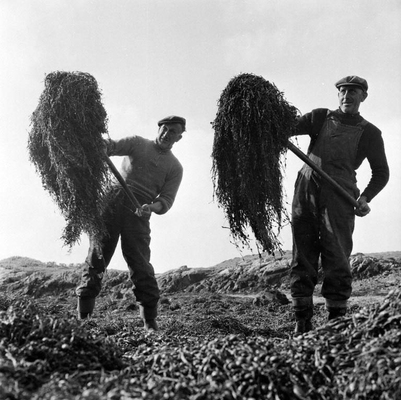
Seaweed Industry In Scotland
It was part of our diet for thousands of years and even features in a poem which dates from around AD563 and was attributed to St Columba. Dulse, a red seaweed, was traditionally eaten with oatmeal in a thick broth or served boiled and tossed in butter.
Throughout the 18th and 19th centuries seaweed was gathered for use as a fertiliser on croft lands. It was also used in large scales in various chemical processes, such as soap and glass making. It had to be dried out and carefully burnt in a kelp pit, which was a trench or kiln. The product which was left was an oily bluish substance which was then shipped away to factories. In the Outer Hebrides, the kelp industry was a crucial lifeline but after 1822 it became cheaper to import this from further afield and the Scottish industry largely collapsed. This was a bitter blow to the economy of the Highland and Islands as the Clearances were already taking place.
In 1893 the English chemist Edward Curtis Stamford, a specialist in iodine extraction, isolated alginate from seaweed. Alginate has many uses including being used as a thickening agent in drinks, ice cream, cosmetics and as a gelling agent in jellies. It is also used widely in the pharmaceutical industry. Sodium alginate is used in dentistry, prosthetics and lifecasting.
Alginate factories were established at Sponish in North Uist in 1955 and in Keose on the Isle of Lewis in 1965. This was in addition to local collecting across many areas like Argyll and Ayrshire. However, Scotland could not keep up with the demand for the product and soon it was being imported from Ireland, Iceland, Norway, South Africa, Chile, and Tasmania. In 1979 Alginate Industries was sold to a Californian company and at this time the Chinese were starting to produce alginates. The company went through various name changes and the biggest plant in Scotland finally ceased in Scotland in 2008 when the Girvan factory ceased production.
In 2006 the Hebridean Seaweed Company was established and they have a factory at Arnish, on the outskirts of Stornoway. The company manufacture seaweed products for use in the animal feed supplement, soil enhancement, alginate and nutraceutical sectors. There are a wide variety of small businesses currently making use of seaweed in Scotland, largely for the health food market and cosmetics.
Timeline


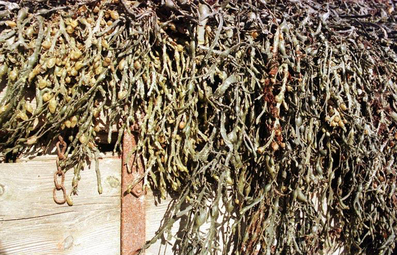
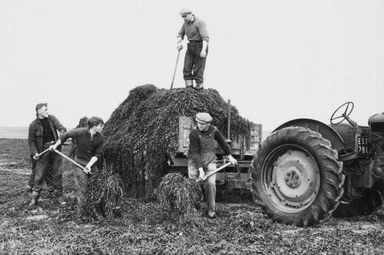
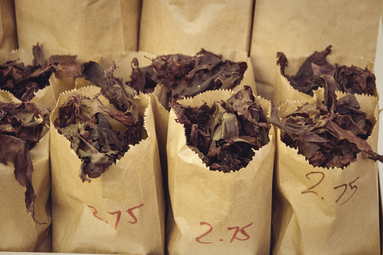
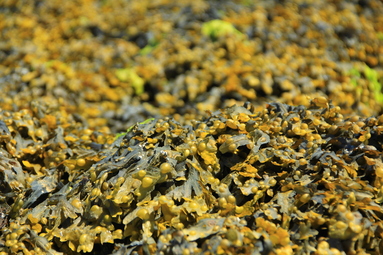
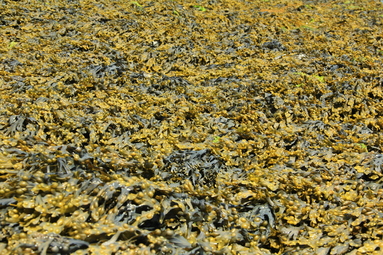
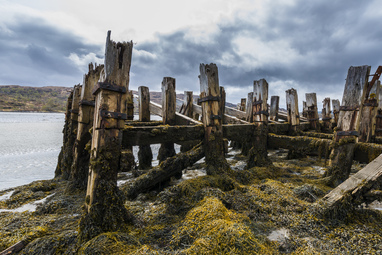
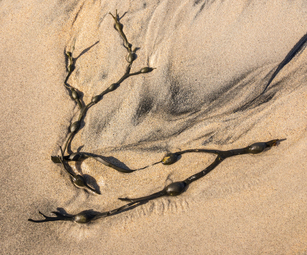
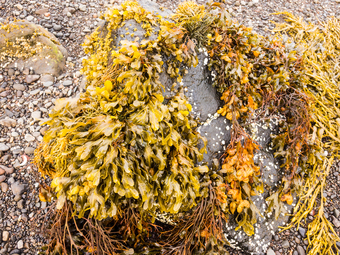







 This project has been funded with support from the European Commission.
This project has been funded with support from the European Commission.